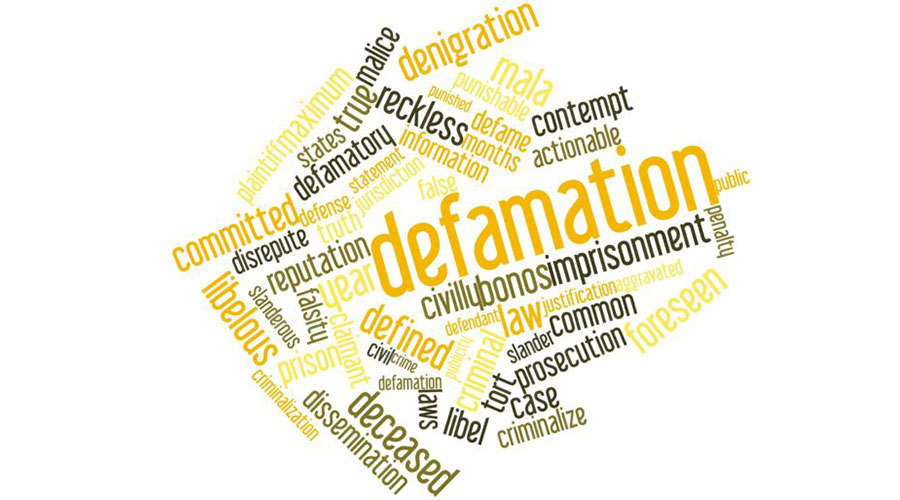Introduction
Since the beginning of the mankind, one thing that differentiated us from all other species on this planet is our thinking and our philosophies. Amongst those ideals, reputation is considered as an important facet of a human being.
Modern times are no different, as laws throughout the world try to protect the reputation of an individual.
Defamation Laws in U.A.E
U.A.E, like many other countries, has given importance to the reputation of a person by making defamation a criminal offence which is punishable under the U.A.E Federal Law No. 3 of 1987 as amended (“U.A.E Penal Code”). But not every act or statement is considered defamatory in nature. For a statement to be defamatory, it has to fulfill certain ingredients that are:
- A statement which is false;
- Such statement was mentioned before the third party in any form;
- Such statement had an adverse impact on the Complainant’s life.
If the Complainant can prove that the act or statement fulfills the ingredients set out above, then it is considered as an offence under Articles 372 and 373 of U.A.E Penal Code. Article 372 says that:- ‘Whoever attributes to another person, by any means of publicity, an incident which makes him liable to punishment or contempt, shall be punished by detention for a period not exceeding two years or by fine not exceeding twenty thousand Dirhams.’ This restricts the free speech of an individual to protect the reputation of another.
Defamation Laws on Social Media
In recent years, times have changed and so has technology. With this we are in a digitalized world with devices which can access the internet with a single touch. These devices affect our life very greatly and bring us closer to make our world in a literal sense globalized world.
But these technologies have their own demerits as well. These technologies are so fast that they reach millions in few seconds; any misstatement on these platforms can affect our lives. In case a defamatory statement is made on social media, then the statement will have a much larger reach than those statements which are made in front of the general public.
Hence, there was a need for a more stringent law to limit the wrongful use of social media and internet. Therefore, U.A.E passed Federal Law No. 5 of 2012 (as amended), which deals with cybercrimes (“Cybercrimes Law”).
This law also deals with defamation on social media, it punishes the offenders of such act with a hefty fine, it also imposes duty upon the employers to take control of the acts of the employees so that they cannot misuse the internet which is provided to them. The Cybercrimes Law also works as an economic sanction to the employees and are deterrent in nature, which will stop other people from following the same path.
Article 20 of the Cybercrimes Law deals with the offence of defamation on social media, Article 20 which reads as follows- ‘Without prejudice to the crime of slander determined by the Islamic Sharia, shall be punished by imprisonment and a fine not less than Dh250,000 and not in excess of Dh500,000 or either of these two penalties whoever insults or accuses another person of a matter of which he shall be subject to punishment or being held in contempt by others, by using a computer network or an information technology means’.
“If a slander or insult is committed against a public official or servant in the course of or because of his work, this shall be considered an aggravating factor of the crime.”
Vicarious Liability of Employers
The Cybercrimes Law, although like laws of many other countries, does not interfere in the affairs of the company, but it imposes an obligation on them, that they should inform the employees about the consequences of defaming someone on social media. In cases where even after informing the consequences, an employee defames anyone, outside the course of employment, then those devices which were used to make such statements shall be seized and the employer shall also be responsible to cooperate with the authorities. Further, if the defamatory statement was made during the course of employment, then the employer also will be held vicariously liable for the acts of the employees.
The Cybercrimes Law also imposes an obligation on the owner of the websites under Article 39 therein, which reads as follows: ‘Shall be punished by imprisonment and a fine or any of these two penalties any owner or operator of a website or computer network who deliberately and knowingly saves or makes available any illicit content or if he fails to remove or blocks access to this illicit content within the period determined in the written notice addressed by the competent authorities indicating the illegal content and being available on the website or the computer network.’
Conclusion
Therefore, given the above relevant provisions of the applicable laws of U.A.E. on the matter of defamation, it is clear that without imposing heavy sanctions on the offenders, it is difficult to protect the reputation of a person on social media. Hence, the owners of the websites and the employees have the responsibility to act according to the U.A.E laws that apply to cybercrimes in order to better protect their interests.

